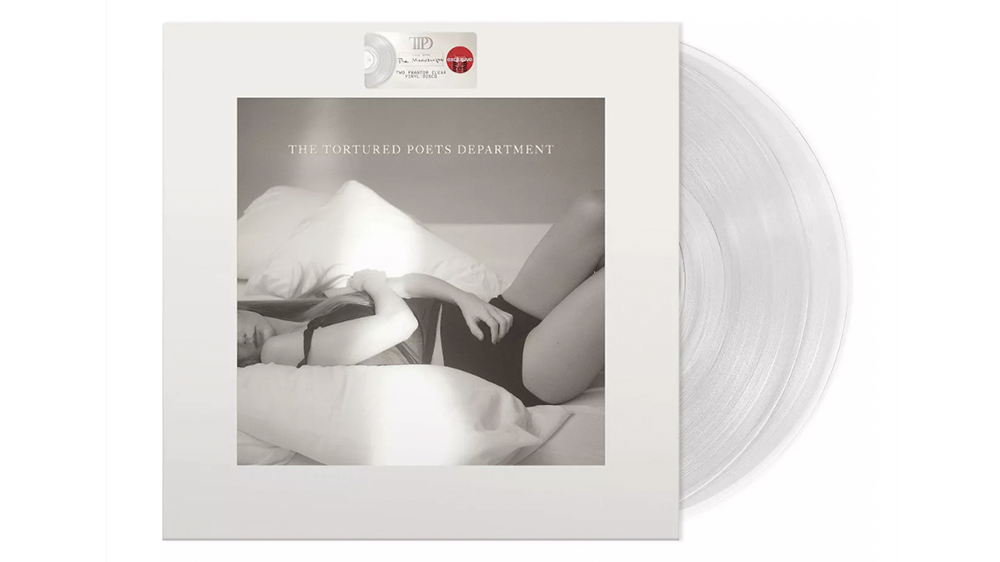Hot girl summer is out, tortured poet summer is in
Taylor Swift dropped her newest album, The Tortured Poet’s Department, at midnight on April 19. Once again, the Roar is here with a full review and everything you need to know about it.
The Tortured Poet’s Department, also abbreviated as TTPD or Poets, is Swift’s eleventh album, made with long-time collaborators Jack Antonoff and Aaron Dessner. She announced it at the 66th Grammys after winning “Best Pop Vocal Album” for Midnights.
“I have never had an album where I needed songwriting more than I needed it on Tortured Poets,” Swift said at her Eras Tour show in Melbourne. She also described it as a “lifeline.” The concept is based on the five stages of grief, as cemented by the release of five playlists with that theme.
And in typical Swift fashion, at 2:00 am, she dropped an extra fifteen songs and revealed that Poets was a double album, with a total of 31 songs. The author of this article was halfway through writing it and had to adjust to this news.
All around, Poets is of the pop and alternative genres, and of course, the vocals are stellar, as are the lyrics. Swift’s strength has always been in songwriting, and Poets is no different.
Long story short, the album isn’t bad, not at all. Swift, in her decade plus of experience, is incapable of making a bad album. At its first listen, it just doesn’t feel up to the standard of the last three albums – Folklore, Evermore, and Midnights. It’s likely to grow on its listeners with time.
The title track, The Tortured Poets Department, is more on the conversational side. Coming in at almost five minutes, it could benefit from brevity.
Swift is known for track fives, which are, historically, the saddest songs on her albums. Poets’ track five, So Long, London, finds her saying goodbye to the city. Though there’s a bit of a slow start, the song gets better as it progresses. That’s the case for many on the album, including The Smallest Man Who Ever Lived, The Black Dog, and But Daddy I Love Him.
Who’s Afraid Of Little Old Me?, a likely reference to the movie Who’s Afraid of Virginia Woolf, is the newest angry girl anthem. As Swift sings “that I’m fearsome, and I’m wretched and I’m wrong,” she reflects on both past controversies and past relationships. That, and I Can Do It With a Broken Heart, are sensational tracks. Broken Heart is about the experience of going out on stage again after the news of Swift’s split from actor Joe Alwyn was publicized, and how she came out stronger on the other side. It’s pop-y considering the rest of the album, and the production is busy, but fun.
In terms of collabs, there are two on the album – Fortnight with Post Malone, and Florida!!! with Florence + The Machine. The former is a pleasant opening track, with nice background vocals from Post Malone. The latter, however, is a complete standout on the album. Swift and Florence Welch sound incredible together, and Antonoff’s production is more typical of a Welch song, which sets it apart. It also somehow details the most stereotypical Florida experience, with lyrics about time-shares, drugs, and the implied killing of a cheating husband.
On The Anthology, which includes the second part of the double album, The Albatross and How Did It End? are wonders for their soft, pretty-sounding production, done by Dessner. So High School is a soft-rock love song about a relationship that makes Swift feel like she’s back in her “bittersweet sixteen” years. Finally, the track Cassandra references the Greek myth of Cassandra of Troy, who was cursed to give true prophecies that no one would ever believe.
There are technically two closing tracks: Clara Bow on the standard edition, and The Manuscript on the Anthology. Clara Bow is reminiscent of other tracks about fame, such as The Lucky One or The Last Great American Dynasty, and has references to Hollywood “It Girl” Clara Bow, Stevie Nicks, and Swift herself. The Manuscript wraps up the album with a neat little bow.
With 31 songs, it’s natural that some of them feel like filler. This is mainly the case on the second part of the album. But every song has something to offer. Poets’ beauty is in its unabashed honesty and expert lyricism, and no matter what song you press play on, you’ll find that.


